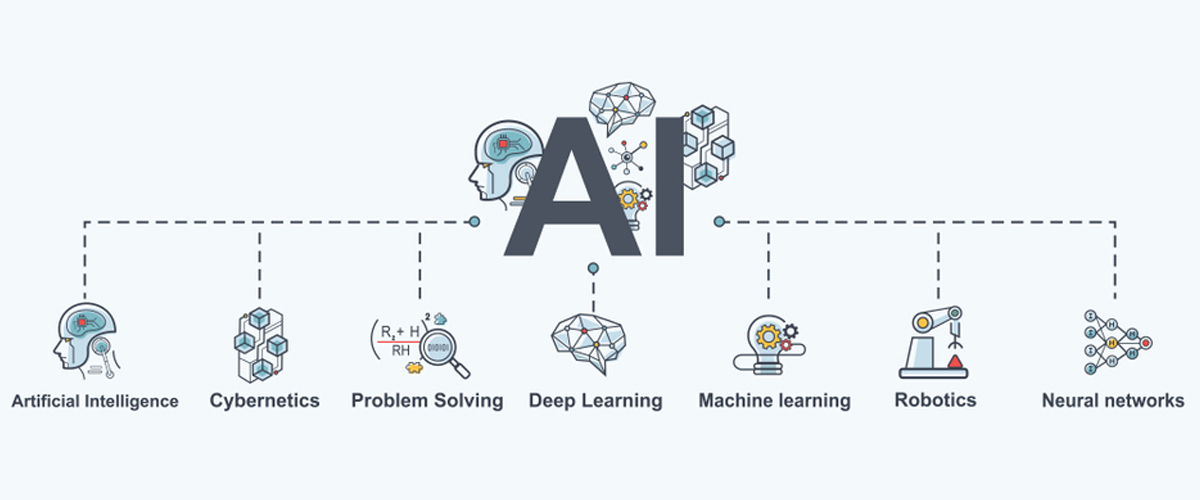Artificial Intelligence (AI) and machine learning have proven beneficial to businesses across several industries. Artificial intelligence is the ability of computer-controlled robots or digital computers to perform tasks commonly associated with intelligent beings. Machine learning (ML) is a subset of artificial intelligence (AI) that concentrates on building systems that improve performance based on behavioural patterns and data (Oracle, 2022).
The ability of AI to rationalize and take the best possible actions in the direction of a desired goal or expected result(s) is its ideal feature. Artificial intelligence includes expert systems, speech recognition, natural language processing (NLP) and machine vision.
Artificial Intelligence and its Business Process Effects
A report by SEMRush (2021) predicted that the surge of AI usage by businesses would create about $2.9 trillion of business value and over 6.2 billion hours of workers’ productivity, with a high impact of enhancing the overall competence of human workers by 2025. This implies that despite a reduction in the number of the total workforce due to AI, the newer jobs that will be created will produce more wealth for businesses and economies that adapt to it. By deploying AI technology, you can position your processes to:
- Avoid mistakes prone to human errors
- Grow expertise through reliance on very accurate analysis
- increase productivity and operational efficiency
- Increase revenue by identifying and maximising opportunities
- Make faster business decisions based on cognitive tools
- Save time and money by automating and optimizing routine processes
- Predict customer preferences and offer more personalized options
Artificial Intelligence as a Corporate Advantage
AI is gradually changing the traditional approach to business management. AI and machine learning have substantially helped businesses speed up decision-making. It has helped to mitigate risks, provide better information security, and enabled businesses to offer customised services to their consumers.
Also, AI is distinctively capable of analyzing massive amounts of data for cyber security purposes, as well as more precise, efficient, and effective risk management. Major benefits of applying artificial intelligence to corporate institutions include:
- Fraud Detection
Financial institutions like banks and fintech firms, would usually need complex and sophisticated analysis processes to detect potential fraud. Using humans for this task is quite a painstaking task with a very high possibility of errors, which may in turn be very substantial in the chain of effects. As a result, machine technologies have proven to be the best for such rigorous tasks.
- Threat Analysis and Management
AI technologies are capable of analyzing vast amounts of data and user details from several sources. This allows for real-time prediction models to be created, enabling security teams and risk management experts to promptly anticipate and combat imminent threats.
Furthermore, these tools can be used to develop more improved systems that give early warning signals whilst ensuring that the business runs continuously and smoothly without interruptions due to threats.
- Data Classification
At the core of AI proficiency is the handling of data, big or small, in a very fast and efficient manner. This is one of the reasons why there are no limits to the businesses that can use AI. These technologies are very good at processing and classifying data based on business patterns and categories. In addition, they can monitor and protect access, thereby ensuring data security.
Locking into the Future with AI
As technology evolves and digitalization gains relevance in different industries, the adaptation of businesses to AI is imperative to remain competitive, relevant and efficient. AI is not just a perk, but a necessity.
While AI tools have taken the place of manual functions and human duties, businesses should strive to adapt rapidly to new ideas. Even though business goals are of strategic focus, an open mindset should be maintained towards corporate growth and likely areas for skilled talent should be gradually enabled towards the overall adoption of artificial intelligence.
References:
https://www.semrush.com/blog/artificial-intelligence-stats/#header3
https://www.oracle.com/ng/artificial-intelligence/machine-learning/what-is-machine-learning/



